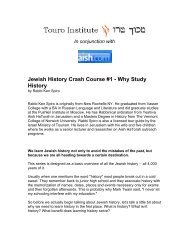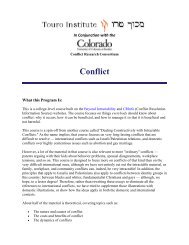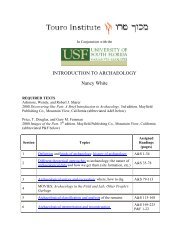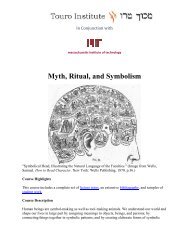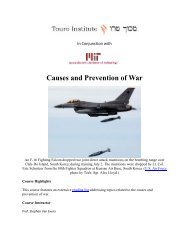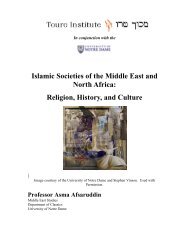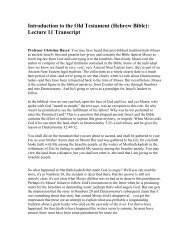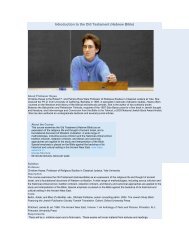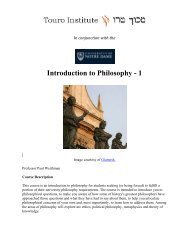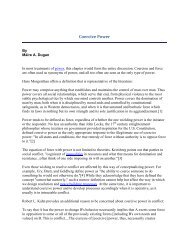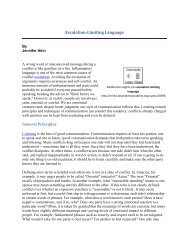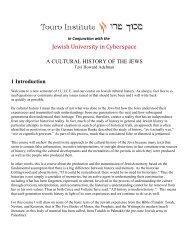In Conjunction with Cultural Anthropology - Touro Institute
In Conjunction with Cultural Anthropology - Touro Institute
In Conjunction with Cultural Anthropology - Touro Institute
You also want an ePaper? Increase the reach of your titles
YUMPU automatically turns print PDFs into web optimized ePapers that Google loves.
6. What subsistence technologies are associated <strong>with</strong> egalitarian societies? What economic<br />
condition is necessary before ranked societies can develop? What subsistence technology tends<br />
to give rise to stratified societies?<br />
7. How were members of Navajo clans organized geographically? How could this benefit<br />
individual members of a clan?<br />
8. What kinds of society are most likely to have on kindreds rather than unilineal descent<br />
groups?<br />
9. Briefly outline the likely historical sequence in which the various descent groups came into<br />
existence.<br />
10. What group of relatives are particularly contrasted <strong>with</strong> other relatives by the Eskimo kinship<br />
system of kin terms and under what social conditions do you suppose it would be most useful for<br />
people to label their relatives <strong>with</strong> this system?<br />
Reading Assignment: Chapter 9: The Life Cycle<br />
<strong>In</strong> this assignment you will review the most common changes in status that people pass through<br />
during their lifetimes. You will learn how rites of passage aid people through the life cycle. You<br />
will learn about the diversity of ways in which pregnancy is understood and childbirth occurs.<br />
You will come to understand the reasons for cultural differences in courtship, marriage,<br />
parenthood, divorce, and old age. You will also learn about the diverse ways in which social<br />
stability is maintained when individual members die.<br />
Assignment Overview<br />
MCQ :: Matching :: True/False :: Short Essay<br />
MCQ - Chapter 9: The Life Cycle<br />
1. Which of the following defines life cycle?<br />
a. a person’s daily activities<br />
b. the yearly cycle of events that a person experiences<br />
c. the social problems that recur in any society<br />
d. the changes in social status that a member of society passes through during his or her lifetime<br />
2. Rites of passage are typically practiced in the cultures of the world on which of the following<br />
occasions?<br />
a. during major social upheaval<br />
b. in preparation for war<br />
c. during changes in social status that are experienced by all members of society<br />
d. during times of particular importance to an individual



